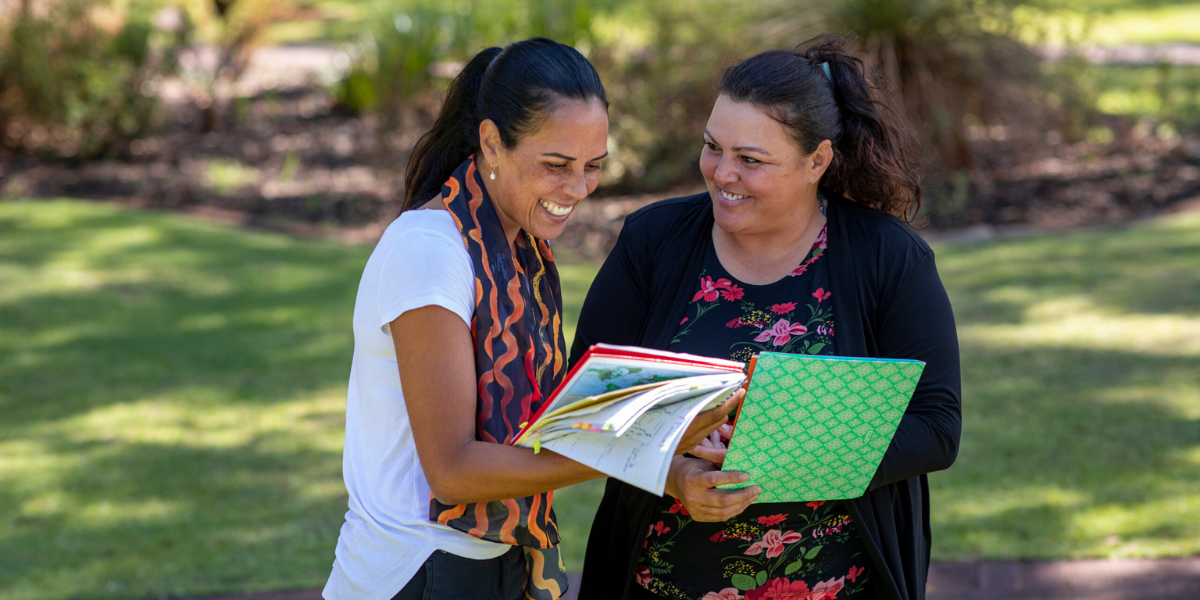Closing – and exceeding – the gap on Indigenous employment outcomes means addressing discrimination and breaking down barriers to achievement.
Many efforts to improve “Indigenous employment” still fall into the category of well-intentioned efforts to do things for First Nations people rather than respecting self-determination and seeking culturally appropriate ways to work with First Nations people as employees.
The First Nations Employment Alliance was formed by Indigenous employment practitioners who no longer wanted “Indigenous employment” explained to us by non-Indigenous business people, politicians, philanthropists or whoever else. The Alliance brings together Indigenous employment experts who are Indigenous people who will drive our campaign for the change that is needed if we are ever to meet the Closing the Gap employment targets.
While the Closing the Gap targets are imperative – and we hope to influence their attainment with our holistic approach – the goals and work of the Alliance go beyond them into the labour and employment markets more deeply. We understand very well that “Indigenous employment” does not operate in a policy vacuum, but is part of the broader employment policy, regulatory and practical environment.
We share and embody our cultural principles of listening deeply and respectfully to our fellow First Nations Peoples, and applying these principles in the contemporary policy environment, creating a joint narrative of experiences and aspirations, while self-determining our future to achieve localised success for mob across the country.
Current context
Governments have committed to strong employment targets under the National Agreement on Closing the Gap, with targets to increase Indigenous youth employment to 67 per cent (Target 7) and Indigenous employment at large to 62 per cent by 2031 (Target 8). This is compared to the 2016 baseline of 57 per cent and 51 per cent respectively.
The unemployment, under-employment and stubborn under-utilisation rates in employment for First Nations people in this country is scandalous – and in our view is attributable to the long-established non-Indigenous narrative of deficit, lack of respect for capabilities and plain old racism that continues to infect job-seeking and workplaces. But on many specific aspects of these issues, we just don’t know the exact causes because we don’t have data. In all of the highly politicised discussion about “Indigenous employment”, First Nations people have only ever been asked once about workplace experiences, and never about job-seeking experiences.
We welcomed the announcement of the Remote Indigenous Jobs Program by Minister Linda Burney on 24 August 2022, effectively ending the shameful period of the discriminatory Community Development Program, recommended by the Forrest Review. This announcement means Indigenous communities will be provided with capacity for community-led and developed programs based on respect for what communities do, how they live and their cultures.
Never again in this country should a group of people, based on their race, be denied the basic human right of being paid for their labour. We welcome the respectful approach being taken by the Government, consistent with what we posit around all forms of employment for Indigenous people, with regard to holistic community-led approaches, and look forward to seeing the new programs develop.
However, perhaps because of the political and business capital afforded by the “bludging Black” narrative, there is an overemphasis on an “Indigenous employment” narrative oriented around Indigenous people’s involvement in subsidised, welfarist programs. By contrast, there is a lack of acknowledgement of both the existence and policy needs of the growing Indigenous upper working and middle class. There needs to be a focus on both these broad groups, reflected in our policy suggestions below, based on evidence and the experiences, needs and aspirations of Indigenous people.
Indigenous peoples are also increasingly engaged in healthcare and social services, retail trade, construction and education and training. While anecdotally we know that there are also significant numbers of Indigenous people working in professional services, we have no hard evidence of this because of the lack of data collection.
The Indigenous employment landscape is changing – and the policy environment should adapt to reflect this.
Importantly, over 2,200 organisations in Australia have active Reconciliation Action Plans (RAPs), with over $3 billion in goods and services procured from Indigenous businesses last financial year and 61,263 Indigenous peoples employed at various levels. There is often a complete unawareness by policymakers of these significant achievements, especially Reconciliation Australia’s extraordinary achievement of RAP employment targets among Australia’s leading business and other institutions.
Despite these achievements and the growing recognition that Indigenous peoples are best placed to conduct our own affairs, our voices are still largely unheard.
To begin to rectify this, in 2020 the Jumbunna Institute at the University of Technology Sydney, in partnership with Diversity Council Australia and sponsored by Coles and NAB, conducted the Gari Yala (Speak the Truth) report. However, we still have no publicly available data with regard to the experiences of Indigenous jobseekers or indeed where First Nations people sit within organisations so that we can begin to understand what may be required in order to rectify both the lack of career development opportunities and the race/wages gap.
We seek a commitment from all levels of government to develop deep dialogue regarding the approaches toward First Nations Peoples’ employment that is cognisant of contemporary policy approaches that are Indigenous-led.
This includes recognition that there is an Indigenous-led Indigenous-employment sector that is broad, experienced and knowledgeable and is best placed to make policy and practical recommendations to governments.
This commitment needs to address wages and conditions as well as benefits and employment across Australia and must do so across the policy, legal and bargaining processes. This will include developing positive, First Nations-led and data-informed policy development across the workplace community.
Recommendations
Considering the professional knowledge within the Alliance, our work with community, corporates, unions, NGOs, and government, the recent Gari Yala Report and our learnings from the First Nations Employment Summit, we make ten recommendations.
1. Collect Indigenous and intersectional details in all labour market reporting and in Workplace Gender Equality Agency reporting. We also recommend that new legislation be introduced, the Workplace Equity Act (in addition to the Workplace Gender Equity Act (WGEA)) to include all intersectional categories, including all Indigenous peoples. The coverage of both Acts should include all levels of governments, healthcare providers, and NGOs, which is where we know anecdotally that many Indigenous peoples work.
Additionally, the WGEA legislation should be amended to extend disaggregated data for all gender equality index (GEI) questions to include occupations the organisation concerned reports about, rather than just manager/non-managers (as that is where many Indigenous women work). The requirements to report should also be extended to all organisations, including Government and community, of more than 20 people, not limited organisations with more than 500. A new Act should also reflect this.
We understand the impact WGEA reporting has on workplace culture – this should be expanded to include Indigenous peoples, as well as all people disadvantaged in labour and employment market terms.
2. Implement a review into labour, employment and workplace racism against Indigenous peoples. This review should be conducted by an appropriately experienced and senior member of the Fair Work Commission (FWC) and the President, or a delegate of the Australian Human Rights Commission. It should examine the effectiveness of current approaches, including definitions of racism and their contemporary appropriateness and the extension of the definition of “hostile work environments” to include work environments that are hostile on the basis of race.
The Inquiry, utilising data (such as Gari Yala) and public submissions and hearings to ensure Indigenous experiences are considered, should make recommendations for law reform based on evidence and contemporary understandings and definitions of racism and workplace behaviour. Most importantly, it should consider whether current workplace applications of legislative frameworks by the human resources sector are effective or appropriate.
Workplace racism is an employment issue, and should begin to be dealt with by the Fair Work Commission as such, including by giving the FWC expanded powers, such as dispute resolution functions in relation to workplace racism.
In this process, a truth-telling commission could also be developed and funded to hear historical and current experiences of racism within job seeking and workplaces to ensure these are heard and documented by Government, with a view to ensuring future change and healing.
3. We recommend amending the Racial Discrimination Act to include a contemporary definition of racism, and to introduce a positive duty on all employers to take reasonable and proportionate measures to eliminate racism in the workplace. This could be done under similar principles outlined in the Australian Human Rights Commission’s Respect@Work Inquiry. This would include the proscription of procedures for the conduct of workplace investigations that are regulated and informed by contemporary approaches to definitions of racism and “hostile work environments” and should provide a regulatory framework for conducting such investigations.
4. Fund the First Nations Employment Alliance and the Cape York Institute (who have campaigned on this issue for many years) to develop an Indigenous definition of “full employment”. This would consider Indigenous definitions of work as outlined above, “cultural load” recompense and the impact of identity strain and racism at work.
5. Invest in an annual survey to better understand the state of play of Indigenous job seekers and workers’ experiences, focusing on those involved in Government programs. As with Gari Yala, the survey may focus on a different topic each year and should be designed by an Indigenous expert panel and utilise Indigenous research methodology.
6. Create national standards and accredited training for individuals responsible for providing advice and addressing instances of racism towards Indigenous employees.
7. Ensure that Government programs create a culture of permanent, sustained employment and career advancement for Indigenous employees. This should be based on respecting the contribution that Indigenous people bring to Australian workplaces, rather than rewarding providers with milestone payments assuming that Indigenous employees are a burden, creating cycles of unemployment that align with funding regimes.
8. Partner with Indigenous psychologists’ professional bodies, Lifeline and Gayaa Dhuwi, to expand their mental health support hotline service to include appropriate support and referral systems for Indigenous peoples affected by racism within the workplace.
9. Develop an education and training package, in partnership with Government agencies and relevant professional bodies, concerning racism and creating culturally safe and appreciative workplaces. This would include appropriate information for employers to implement policies and procedures to deal with racism.
10. Work with the federal and state education departments to ensure school curriculums provide better awareness for the identification and impact of racism. This must be age-appropriate and evidence-based for children across their schooling journey.
This article is based on a submission by the First Nations Employment Alliance submission to the Commonwealth Treasury’s Employment White Paper.
Professor Nareen Young is Associate Dean (Indigenous Leadership and Engagement) at the University of Technology, Business School, Sydney. She also leads Jumbunna Indigenous Education and Research Institute’s Indigenous People and Work Research and Practice Hub. Nareen has led and managed two employment Diversity peak bodies, Diversity Council Australia and NSW Working Women’s Centre. She is influenced by both her Indigenous and culturally diverse heritages in this work. In 2022 was appointed to the NSW Premier’s Women’s Economic Participation Strategy’s Expert Advisory Panel.
Joshua Gilbert is a Senior Researcher at the UTS Jumbunna Institute of Indigenous Education and Research and is a member of the Indigenous People and Work Research and Practice Hub. Joshua is a Worimi man, farmer and academic, who shares the narration of Indigenous identity through agricultural truths in light of modern contexts. He is currently undertaking a PhD at Charles Sturt University, focused on the concept of Indigenous modernity through agriculture. He was recently recognised internationally for his work, announced in the inaugural 50 Next: People Shaping the Future of Gastronomy cohort. Joshua is on the board for KU Children’s Services, Indigenous Business Australia, the NSW Aboriginal Housing Office and Reconciliation NSW.
This article is part of a hub published by The Policymaker to mark Closing the Gap Day on 16 March 2023.
Image credit: Pixabay












